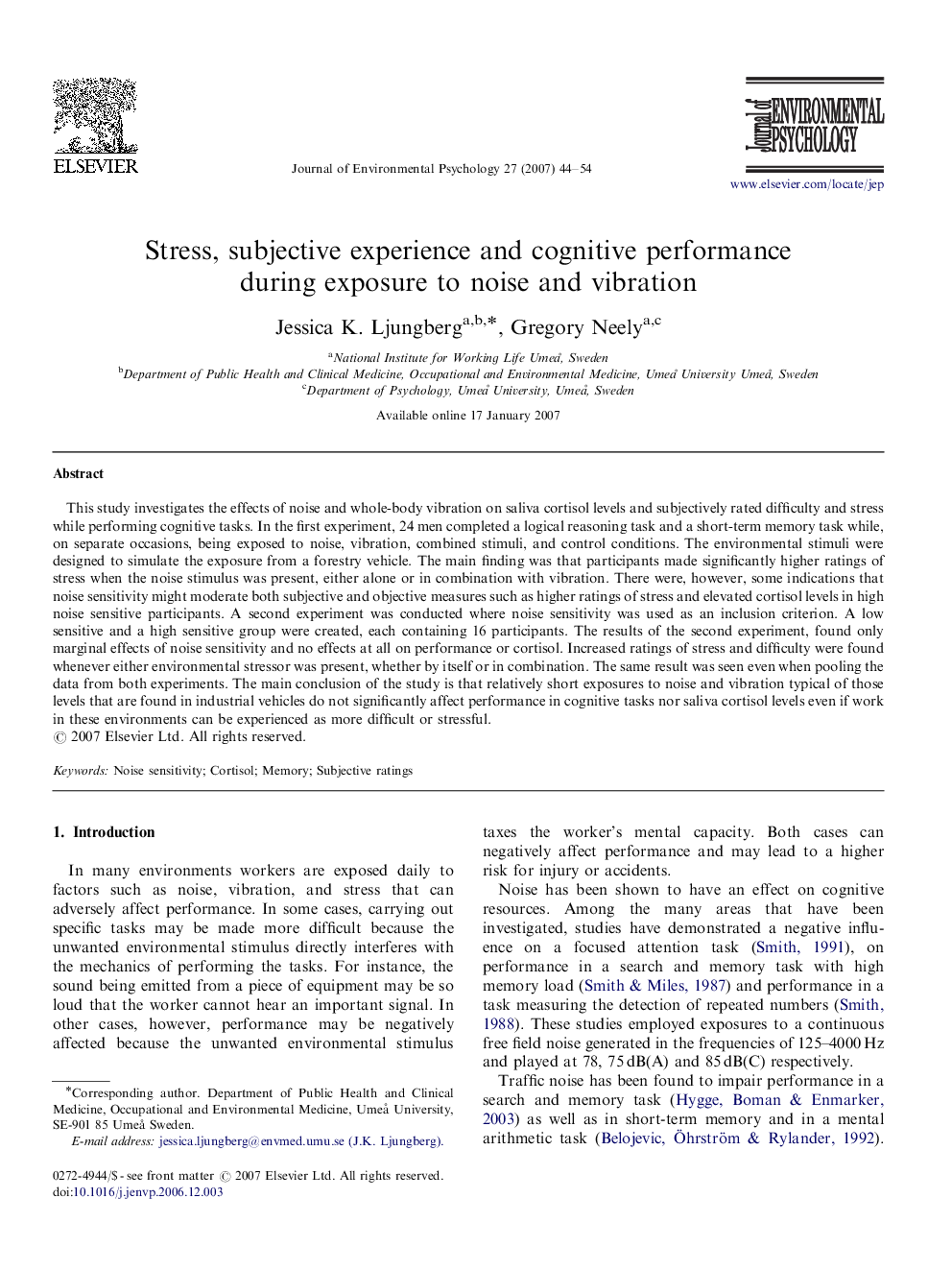| Article ID | Journal | Published Year | Pages | File Type |
|---|---|---|---|---|
| 885905 | Journal of Environmental Psychology | 2007 | 11 Pages |
This study investigates the effects of noise and whole-body vibration on saliva cortisol levels and subjectively rated difficulty and stress while performing cognitive tasks. In the first experiment, 24 men completed a logical reasoning task and a short-term memory task while, on separate occasions, being exposed to noise, vibration, combined stimuli, and control conditions. The environmental stimuli were designed to simulate the exposure from a forestry vehicle. The main finding was that participants made significantly higher ratings of stress when the noise stimulus was present, either alone or in combination with vibration. There were, however, some indications that noise sensitivity might moderate both subjective and objective measures such as higher ratings of stress and elevated cortisol levels in high noise sensitive participants. A second experiment was conducted where noise sensitivity was used as an inclusion criterion. A low sensitive and a high sensitive group were created, each containing 16 participants. The results of the second experiment, found only marginal effects of noise sensitivity and no effects at all on performance or cortisol. Increased ratings of stress and difficulty were found whenever either environmental stressor was present, whether by itself or in combination. The same result was seen even when pooling the data from both experiments. The main conclusion of the study is that relatively short exposures to noise and vibration typical of those levels that are found in industrial vehicles do not significantly affect performance in cognitive tasks nor saliva cortisol levels even if work in these environments can be experienced as more difficult or stressful.
